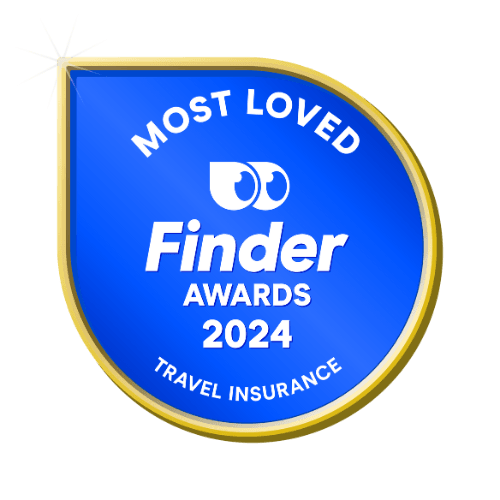

RAC Travel Insurance came out on top among 20 brands with a score of 4.48/5. Out of all brands, RAC was one of the most trusted, with 97% of people surveyed considering the insurer trustworthy and reliable.
Every travel insurance policy has things you won't be covered for. Common exclusions include:

Travel insurance can cover you for COVID-19 in Japan. A policy can cover you for the following:

"When I travel, I don't want to fork out a lot for travel insurance. I always get something above the bare minimum though which usually only covers medical-only expenses. Flight disruptions and delayed luggage are really common, so look for a cheap policy that covers me for these things."
For emergencies: call 110 (police), 119 (ambulance) or 119 (fire).
In a medical emergency, call for help and then contact your insurer on their emergency assistance line.

"Shop around - there are big differences in the costs of policies with similar inclusions. Wearing a mask in public if you have a cold is an expected courtesy in Japan - respect local customs if you do get ill. Take out insurance as soon as you book your trip - that maximises the value of your cover."
 You pay nothing. Finder is free to use. And you pay the same as going direct. No markups, no hidden fees.
You pay nothing. Finder is free to use. And you pay the same as going direct. No markups, no hidden fees.
 You save time. We spend 100s of hours researching travel insurance so you can sort the gold from the junk faster.
You save time. We spend 100s of hours researching travel insurance so you can sort the gold from the junk faster. You can trust us. We say it like it is. We aren't owned by an insurer and our opinions are our own.
You can trust us. We say it like it is. We aren't owned by an insurer and our opinions are our own.
The best travel insurance policies are different for each individual traveller.
Compare Bali travel insurance quotes from over 16 brands.
Check out these travel insurance coupons to save on your policy.
Annual leave is precious, don't waste it! Here's the ultimate Australian travel hack to maximise your holidays in 2026.
Compare the insurance offerings from different debit cards to determine whether your card can provide the travel insurance protection you need.
Ready to get moving? See quotes and compare travel insurance policies for USA from 15
brands
A guide to understanding cruise insurance - why you need it, what's covered, and what's not.
Review affordable backpacker insurance for your next overseas adventure and find the right insurance policy to cover commonplace backpacking travel risks.
Travelling for business? Find corporate travel insurance for individual and group trips.
Domestic travel insurance can provide cover for trip cancellation (domestic flights), loss or damage to luggage and expensive items, car rental excess charges and much more. Find out why domestic travel insurance is worth getting and compare policies from Australian insurers.
Cost of a medivac flight back from Japan to Australia?
Please
Hi Geoffrey,
The cost can range depending on the type of injury and the type of medical care required during the journey. Chubb shares some example itineraries here, which range from $16,000 through to $500k plus.